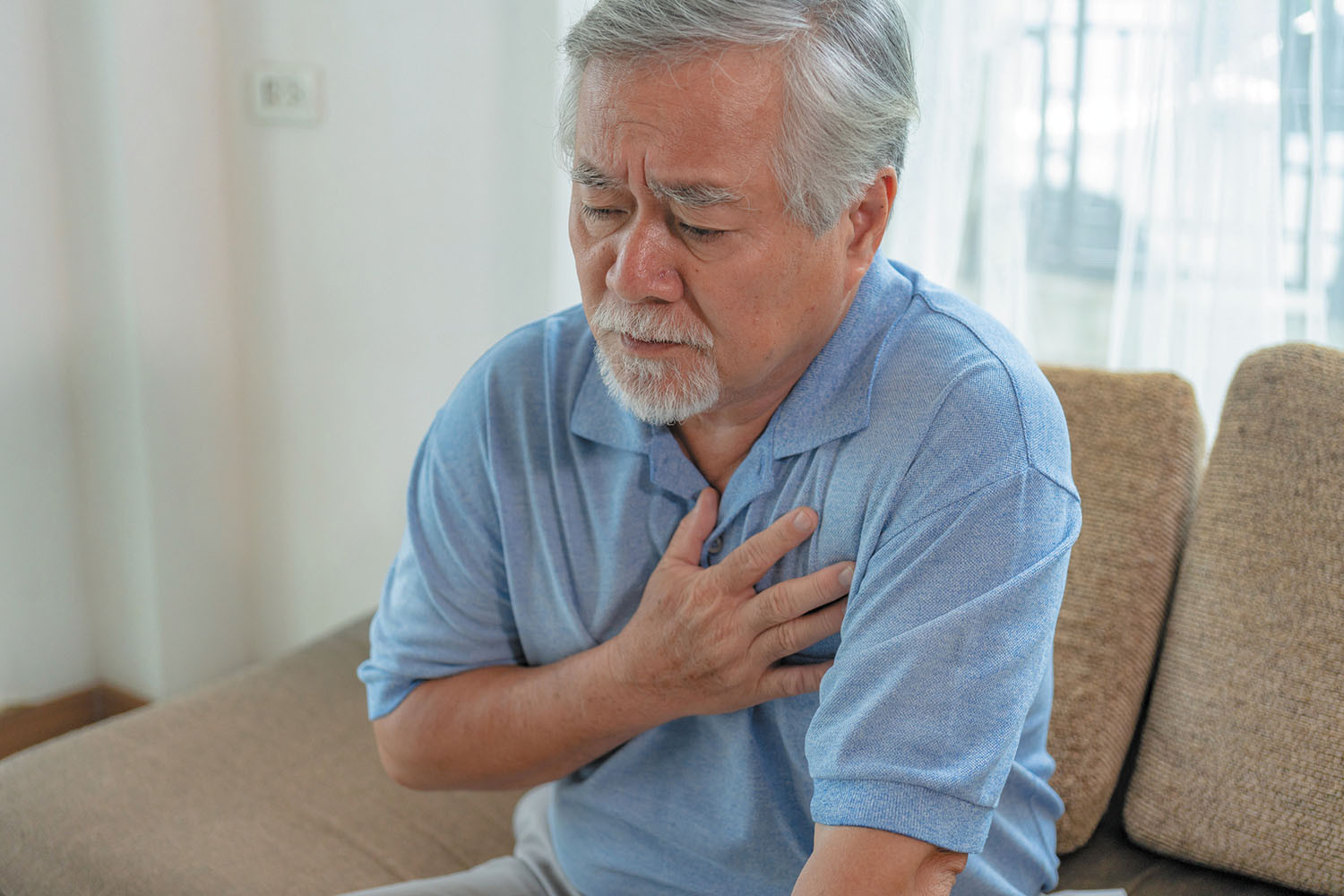
Driving with arthritis pain: Stay comfortable — and safe — behind the wheel

Daily cup of coffee may prevent afib recurrence

Gene-editing therapy lowers harmful blood fats in early study

What is EMDR therapy, and who can it help?

GLP-1 drugs versus bariatric surgery for treating obesity

Two dumbbells, three exercises, and 10 minutes

Easing the emotional burden of IBS

Modify your push-ups to meet your fitness level

What is long QT syndrome?

Stroke survivors may benefit from very low LDL levels
Heart Health Archive
Articles
A closer look at alcohol's effect on heart health
Excessive drinking can contribute to high blood pressure, obesity, and stroke, while moderate drinking (no more than one drink per day for women and two drinks or fewer per day for men) is linked to a lower risk of heart problems. One possible mechanism might be stress reduction. Brain scans of people who reported light to moderate drinking show less activity in the part of the brain that responds to stress, compared with the scans of people who abstained or drank very little. Stress not only raises blood pressure and heart rate but also triggers inflammation that causes plaque buildup, which contributes to heart attacks.
Move of the month: Alternating toe taps
Alternating toe taps are a good way to strengthen the core muscles without putting extra strain on the lower back.
Heart-healthy eating: How does your diet stack up?
Four eating patterns—including the DASH, Mediterranean, pescatarian, and vegetarian diets—align most closely with recommendations for a heart-healthy diet, according to a 2023 scientific statement from the American Heart Association. These diets limit saturated fat and excess carbohydrates, especially highly processed carbohydrates and sugary drinks. Evidence supporting these diets comes from decades of randomized trials, population-based studies, and other research.
Heart attacks strike in different ways
There are two different mechanisms by which most heart attacks happen. Both are related to insufficient blood flow to an area of the heart, most often secondary to fatty plaque buildup in coronary arteries. Chest pain remains the most common heart attack symptom, but others are often subtle, and the underlying process causing the heart attack can differ. It's important for people to recognize the different signs of heart attacks, so they know when to seek immediate medical care.
Autoimmune diseases pose a threat to the heart
People with autoimmune diseases may be up to three times more likely to develop cardiovascular disease than people without an autoimmune disease. Among the most common autoimmune diseases are rheumatoid arthritis, psoriasis, and lupus. Awareness of this elevated risk is especially important because autoimmune disease typically strikes when people are in their 20s or 30s. In turn, heart problems may develop up to a decade earlier than in people without an autoimmune disease. A calcium scan, which detects early signs of atherosclerosis, can help assess a person's risk and guide treatment advice.
Vegetarian and vegan diets may lower cholesterol levels
Following a vegetarian or vegan diet may help lower levels of total and LDL cholesterol, according to a 2023 review of studies published over four decades.
To elevate your exercise routine, take a hike
Hiking can promote cardiovascular health by building lower-body strength and boosting the heart rate, especially if the route involves elevation changes. Using poles can provide stability, especially during the downhill stretches. Using poles also helps strengthen the muscles of the upper body and may increase the number of calories burned during a hike.
Breathing exercises to lower your blood pressure
Short stints of deep, slow breathing can help calm the nervous system. Slow breathing—anywhere from six to 10 breaths per minute—features a prolonged, rhythmic, and slow exhalation period. A regular breathing practice may reduce blood pressure as much as taking medication. People can practice deep breathing on their own by counting their breaths, doing guided exercises available free online or with a smartphone app, practicing yoga-based breathing (known as pranayama), or using special devices.

Driving with arthritis pain: Stay comfortable — and safe — behind the wheel

Daily cup of coffee may prevent afib recurrence

Gene-editing therapy lowers harmful blood fats in early study

What is EMDR therapy, and who can it help?

GLP-1 drugs versus bariatric surgery for treating obesity

Two dumbbells, three exercises, and 10 minutes

Easing the emotional burden of IBS

Modify your push-ups to meet your fitness level

What is long QT syndrome?

Stroke survivors may benefit from very low LDL levels
Free Healthbeat Signup
Get the latest in health news delivered to your inbox!
Sign Up











